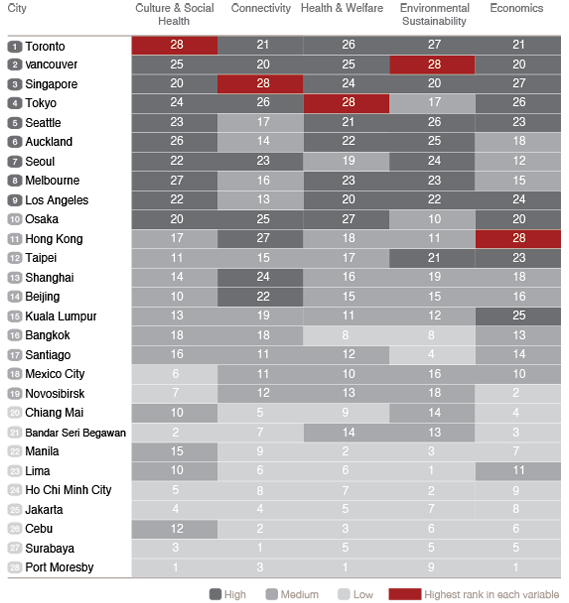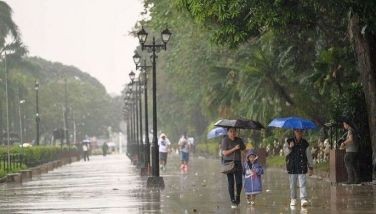Manila, Cebu rank low in list of livable, competitive cities in Asia-Pacific
MANILA, Philippines - Manila, the host of this year’s Asia-Pacific Economic Cooperation (APEC) meetings, ranked at the lower end of a new list of cities in the region gauging livability and competitiveness.
According to the maiden report titled Building Better Cities, the Philippine capital ranks 22nd out of the 28 urban centers among APEC’s 21 member-economies. Another Philippine city, Cebu, ranked 26th.
Toronto in Canada topped the list, while Port Moresby in Papua New Guinea was at the other end.

Photo from www.pwc.com
The report, conducted by auditor PricewaterhouseCoopers, was released during the APEC CEO Summit on Tuesday. Manila is culminating its hosting of this year’s APEC meetings this week.
“We hope the report will inspire cities within APEC to collaborate, to borrow best ideas, and seek advice on tenacious problems,” the 61-page report stated.
The survey used 39 indicators, grouped into five categories, to gauge the cities. The categories were culture and social health, connectivity, health and welfare, environmental sustainability and economics.
Each category is given grades from 1 to 28, with the latter being the highest.
Among the five segments, Manila got its highest score of 15 or “medium” in the culture and social health. The report cited the capital’s “long-standing” and “century-old tradition” of teaching the English language.
It said such effort has been instrumental to the city and Cebu to become “two of the biggest markets globally in the business process outsourcing sector.”
In terms of connectivity however, Manila got a “low” score of 9 “due to its low public transport systems ranking.” The report however noted planned government investments in infrastructure which could ease congestion.
Manila’s lowest scores were from health and welfare as well as environmental sustainability. In the former, the capital ranks second to the bottom with a score of 2, while the latter is graded 3.
For health and welfare, the report noted of the diaspora of Filipino health care providers for better pay abroad. “The Philippine Medical Association says that 930,000 doctors are needed to serve their whole country,” it said.
“And yet a good percentage of Filipino doctors are becoming nurses or leaving the country to practice elsewhere,” it added.
For environmental sustainability, the report said the Philippines needs to encourage more investments for renewal energy by providing more incentives.
The last indicator, economics, had the Philippines graded seven out of 28. The indicator grades the cities’ economic strength by creating opportunities for businesses and consumers.
- Latest
- Trending



























